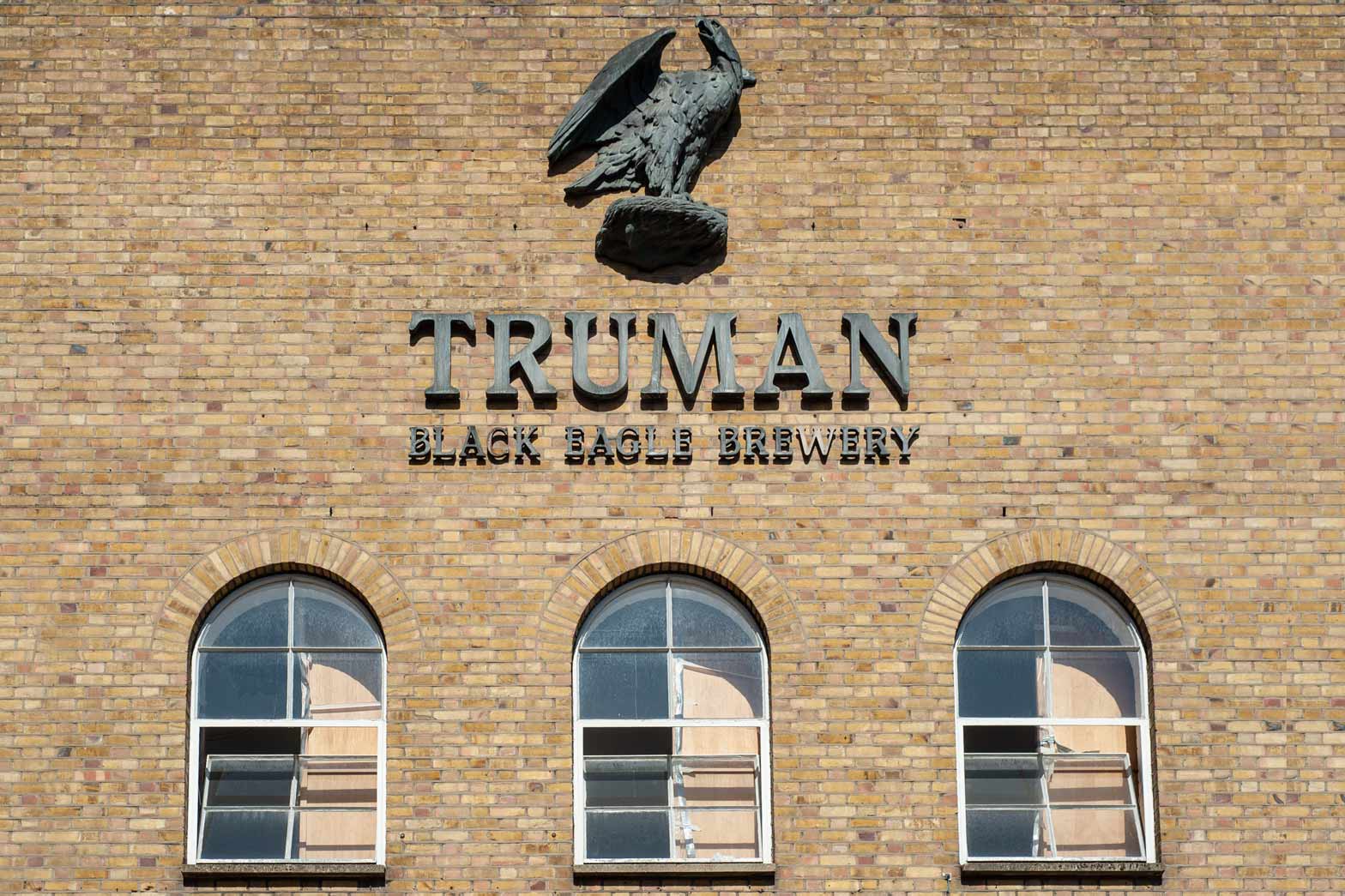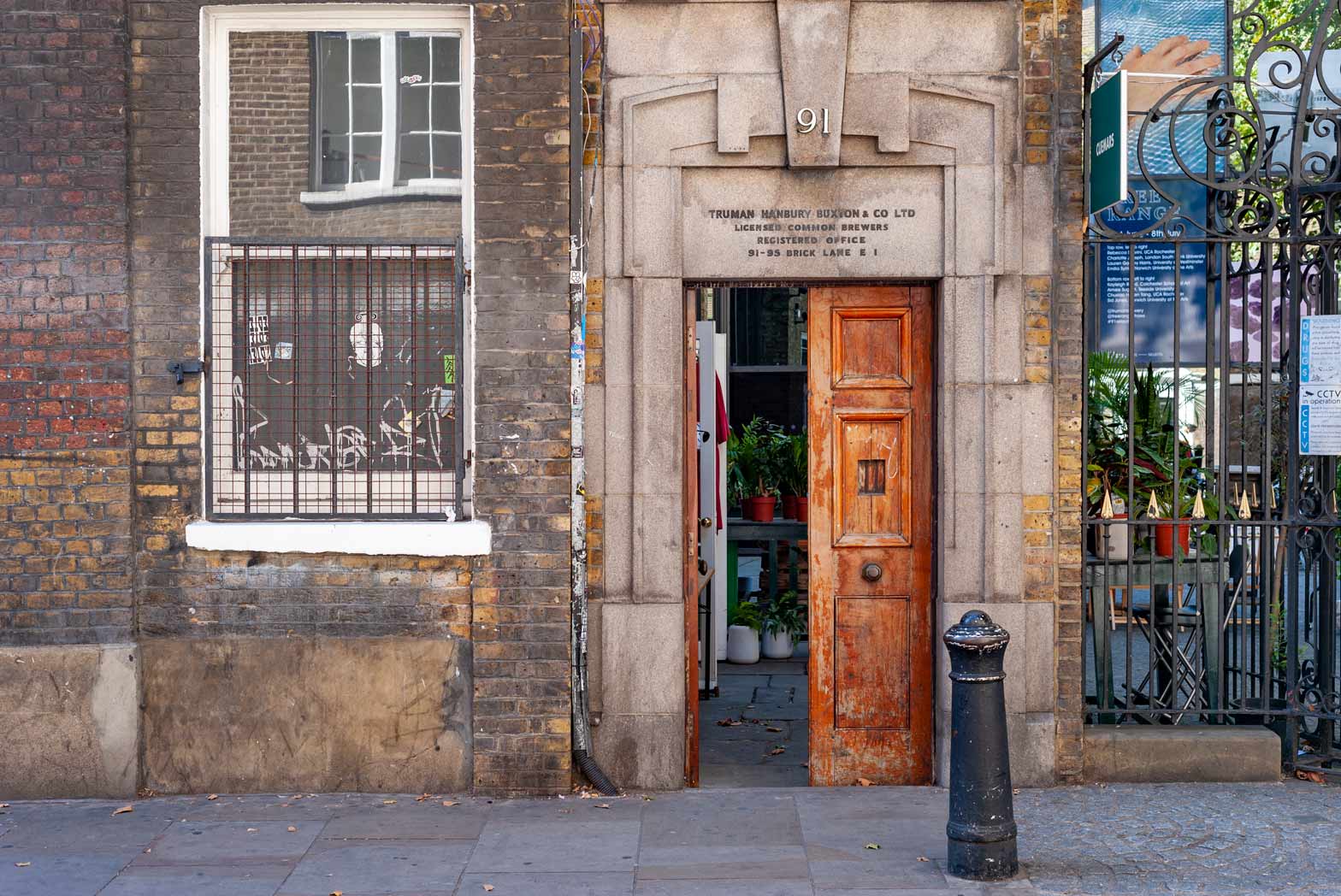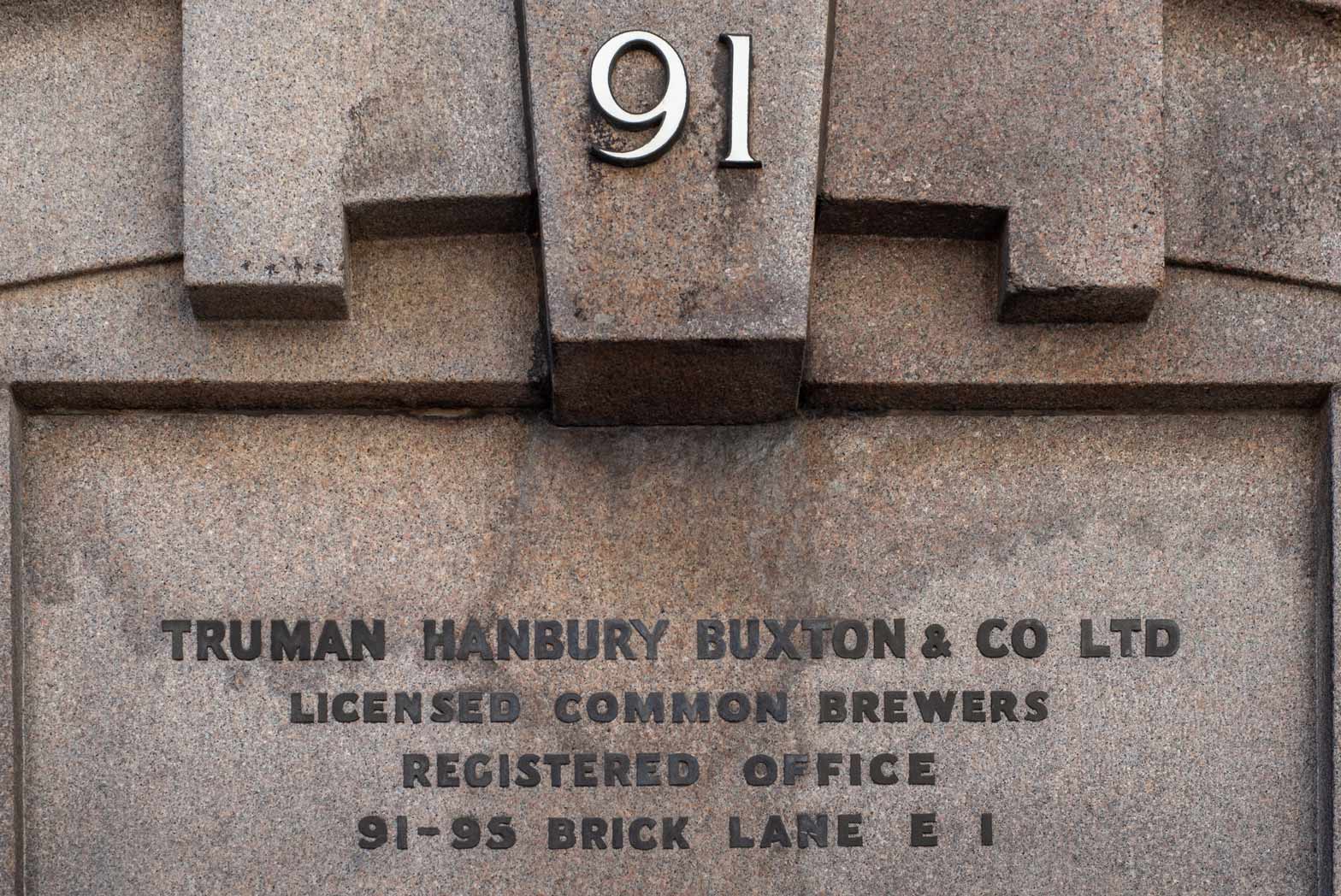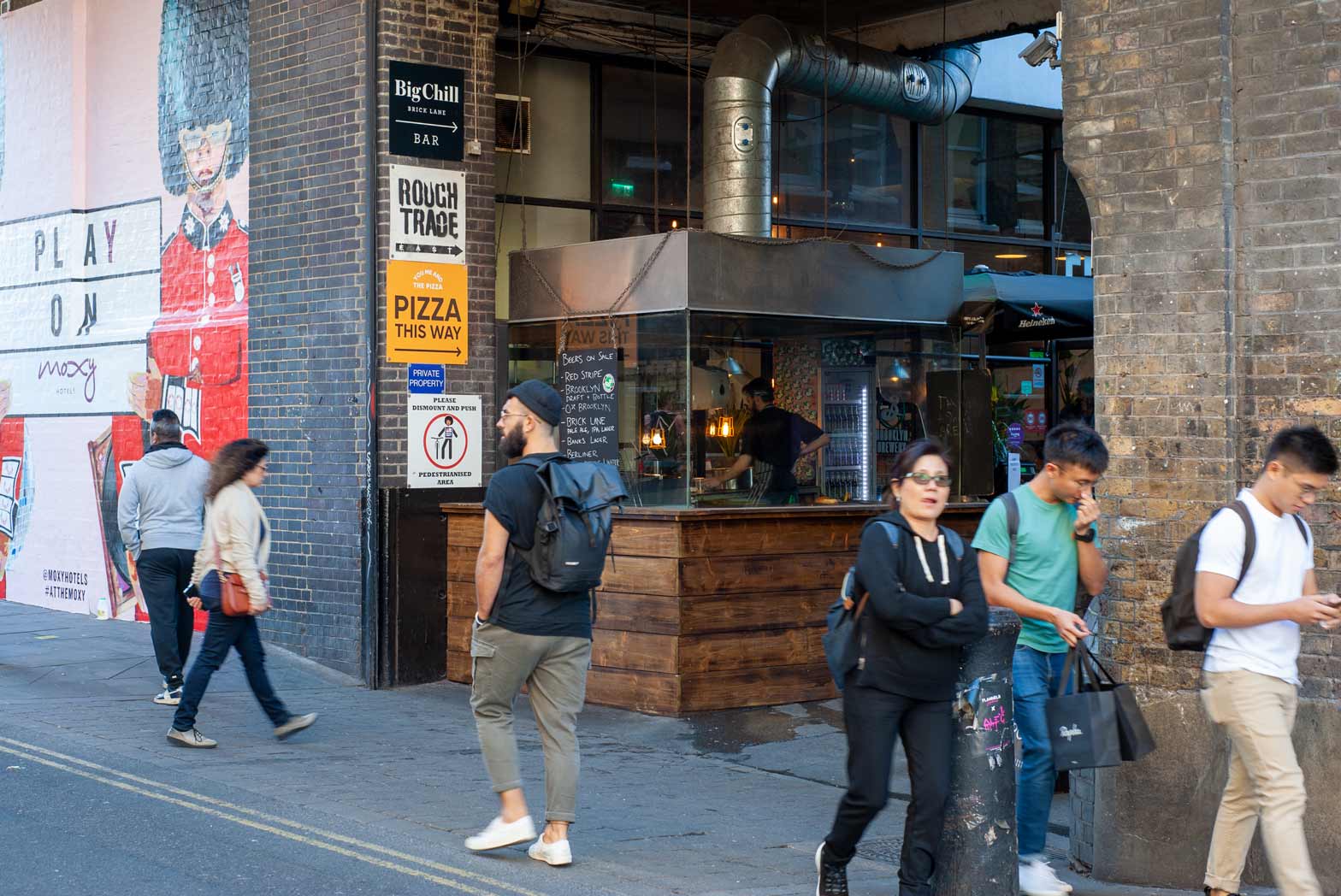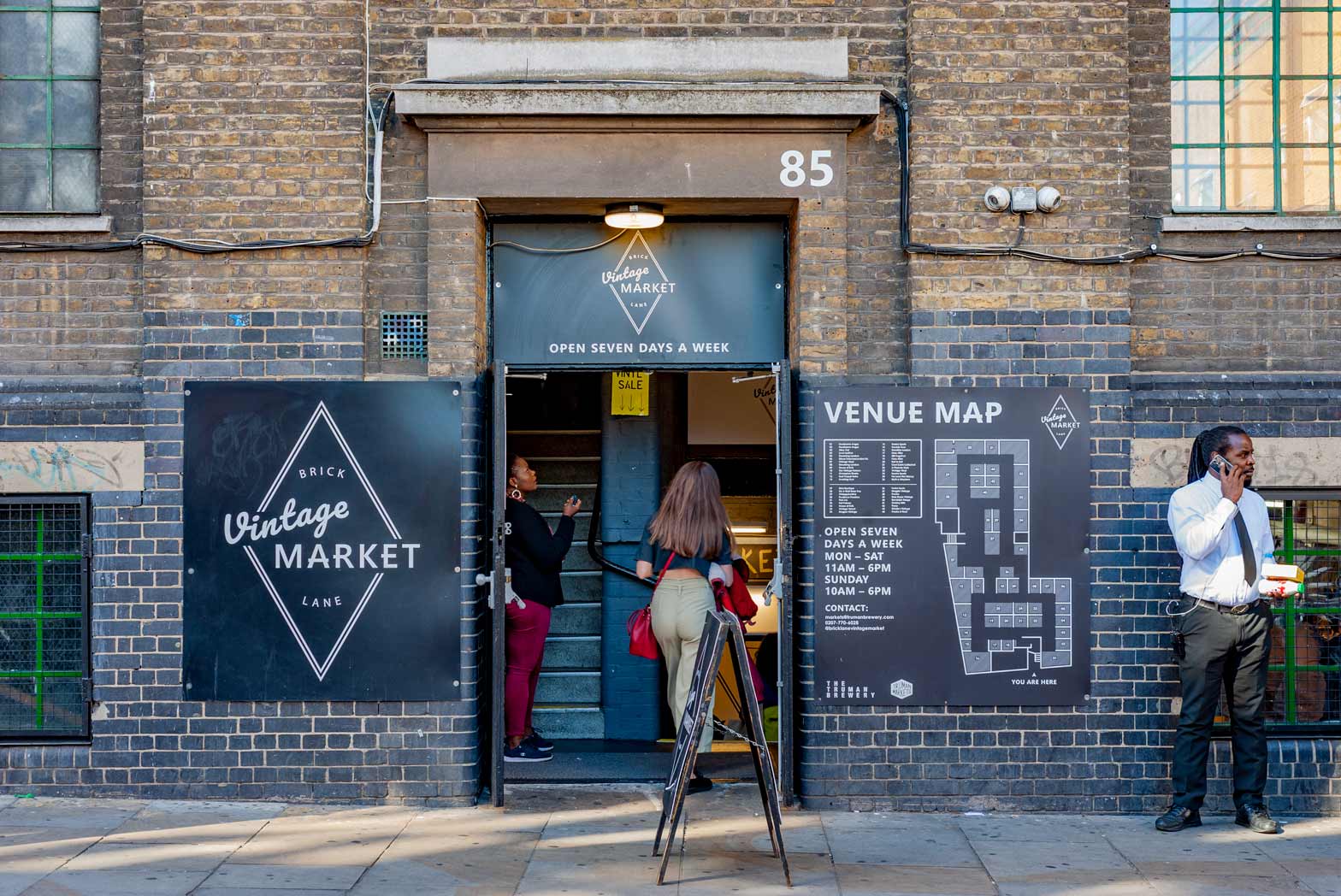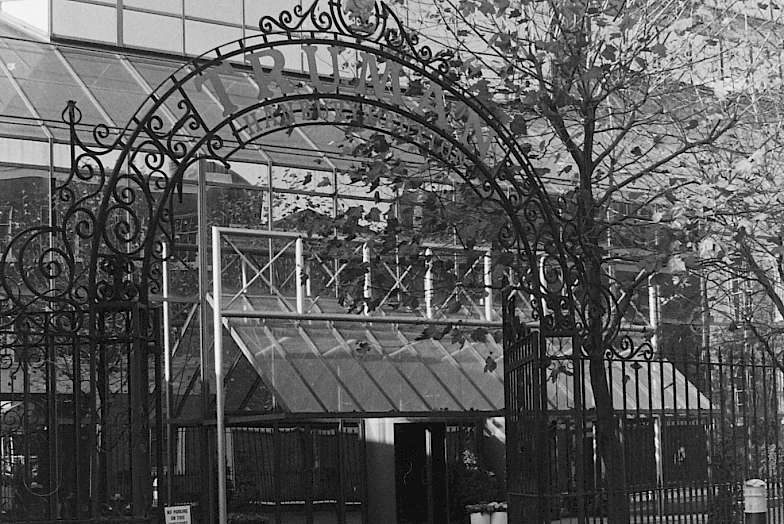The Old Truman Brewery
The Old Truman Brewery site bisects Brick Lane. Nowadays, all Bangladeshi-owned restaurants are clustered to its south. To the north of the site there is an upmarket mixture of trendy cafés and restaurants, vintage clothes shops, delicatessens and boutique chocolatiers.
The Old Truman Brewery, established in 1660, was once the largest brewery in London - it closed operation as a brewery in 1989.
In 1995, the Old Truman Brewery site was sold for £4 million to an established East End Iraqi Jewish family, the Zeloofs. The new owners refurbished the 11-acre site, transforming it into an arts hub with galleries and exhibition spaces, recording and design studios, and offices to rent. Several of the new offices were occupied by tech start-ups. In 2002, the Body Worlds exhibition was held at The Old Truman Brewery, which brought many visitors to Brick Lane.
The redevelopment of The Old Truman Brewery, and the opening of the Vibe Bar nightclub inside the new development in 1995, contributed to the re-branding of Brick Lane. The changes shifted trade in Brick Lane from a dining to a night-time club economy and attracted a new and younger, predominantly white, middle-class crowd into the area.
While Vibe Bar closed in 2014 after its opening hours were restricted by the council, the Old Truman Brewery site remains home to shops, galleries and offices. It includes a café, bar, food court with pop-up stalls and monthly vegan nights, and the Rough Trade Records shop, which boasts a vast vinyl collection and hosts live music nights. Commenting on the activities of The Old Truman Brewery, one local Bangladeshi restaurant owner said:
‘you know, in Truman [Brewery], you get fashion shows, you've got loads of music – radio stations and that.’
Another Brick Lane resident and community worker said:
‘so now they’ve opened up Spitalfields Market on a Saturday, so more tourists are coming, more people are coming out for the day, you know. And you got Rough Trade Records inside [Old Truman Brewery], which has been a game changer as well, I think.’
The transformation of the Old Truman Brewery site in the 1990s is viewed by some residents, local business owners and stakeholders as positive. For example, a former regeneration representative told us:
‘The Truman Brewery moving in had a lot of impact. The quality of businesses they brought in, their workspace, their support for graduates and for undergraduates, their support for fashion with the London Fashion Week, really helped create a buzz.’
He continued:
‘The Truman Brewery was also a massively important draw to the area for a lot of people, who wouldn’t have come to Brick Lane for a curry necessarily, or that wouldn’t have been their prime motivation for coming to the area. They would have been coming for something that was happening in the Brewery.’
A former representative of a local enterprise agency for ethnic minority businesses, supported this view:
‘So, everybody else who had an entrepreneurial spirit came to Brick Lane, came to see the open space in the Truman's Brewery So, things, exhibitions, particularly exhibitions started coming in. And I think the trigger for changing Brick Lane to what it is today happened at that time.’
However, some of Brick Lane’s Bangladeshi restaurant owners have experienced these changes differently. Once former Brick Lane restaurateur commented that the sale and conversion of the Old Truman Brewery site in 1995 represented a lost opportunity for the local Bangladeshi community. He said:
‘it could have been turned into something really special for Banglatown – it could’ve given the whole area a lift and drawn local [Bangladeshi] people away from Green Street [in Newham], as well as people from the rest of the country and foreign tourists.’
The site, he continued, could have offered a space for local Bangladeshi retailers, such as:
‘gold and jewellery shops, sari shops, fashion shops, restaurants, souvenir shops, grocery and cash-and-carry shops’
Other Bangladeshi restaurateurs on Brick Lane were concerned about the competition for their business currently posed by food and drink outlets in The Old Truman Brewery. One restaurant owner said:
‘The Truman Brewery has more or less taken over and that doesn’t benefit our business.’
Another said:
‘restaurants have been hit hard by the street-food stalls [at weekends] in Brick Lane near The Old Truman Brewery.’
A third Bangladeshi restaurant owner echoed these sentiments:
‘the food court [in The Old Truman Brewery] killed off our lunchtime trade on Saturdays and Sundays. Before it opened our only competition were the bagel shops at the end of the road’
There has been, and continues to be, little interaction or crossover between the outlets and activities of The Old Truman Brewery and Brick Lane’s Bangladeshi residents and restaurateurs.
